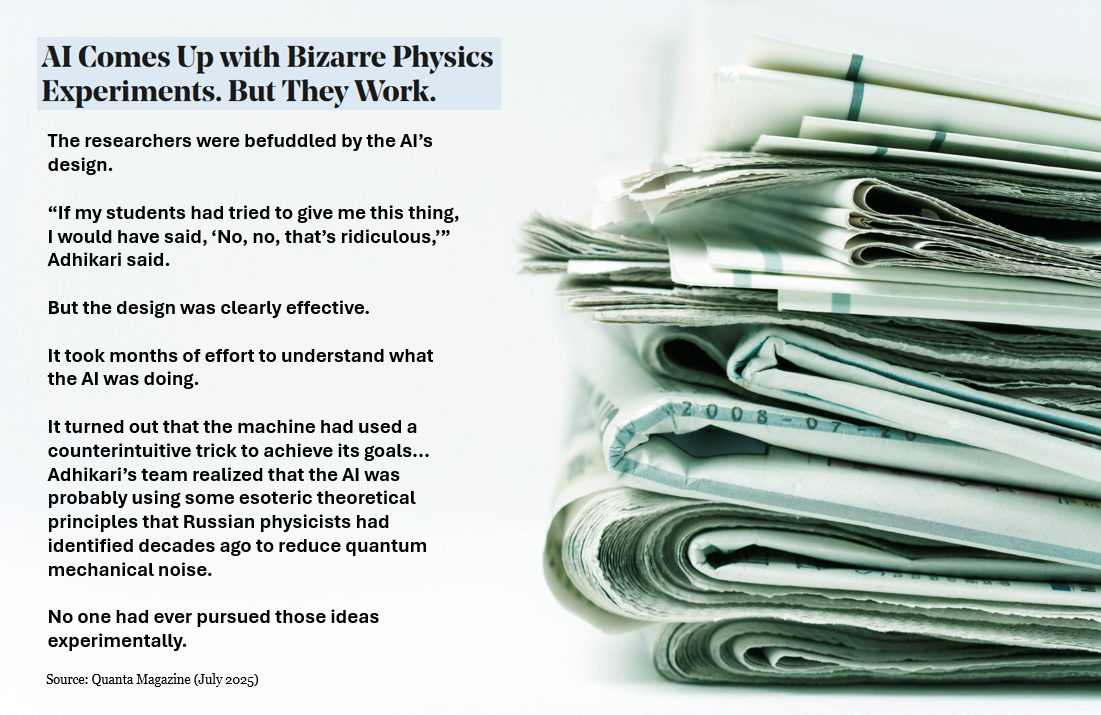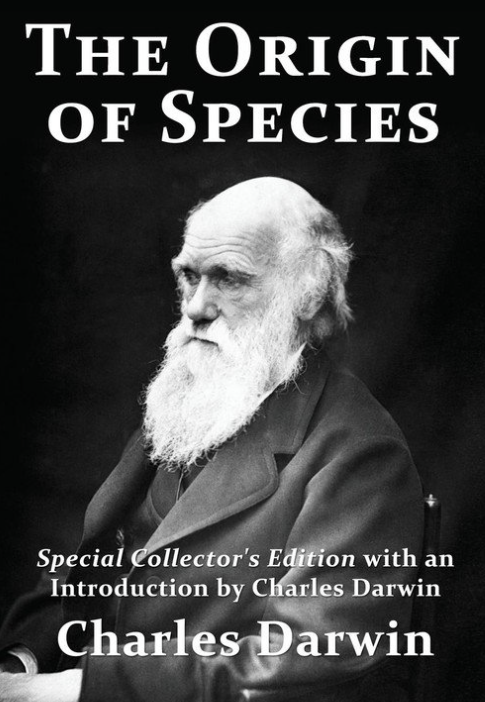|
Getting your Trinity Audio player ready...
|
By Andrew Macken
The great British economist John Maynard Keynes is often quoted as saying: “When the facts change, I change my mind. What do you do, sir?”
Whether or not he actually said it, many believe it was a fair representation of Keynes’s pragmatism and adaptability.
In this essay, we explore how AI is now accelerating the invalidation of existing facts and our discovery of new facts, which will likely create more chaotic, inefficient markets.
But it will only be the ‘adaptable investor’ – those who can absorb knowledge and, like Keynes, ‘change their minds’ quickly – who will be able to exploit the huge opportunities created by this new market environment.
Facts are always changing
Many students studying medicine will be told early on that, within several years, about half of what they’ve been taught at university will be wrong (only the teachers don’t know which half).
That’s because health and medical publications have a ‘half-life’ of facts of about 2-3 years.
The ‘half-life of knowledge’ is how long it takes for half the knowledge or facts of a particular area to be disproven or become out of date. (The idea was explored in detail by Dr Samuel Arbesman – now a complexity scientist for Lux Capital – in his 2012 book The Half-Life of Facts.)
A classic example of medical facts changing relates to the cholesterol content of eggs. For decades, the American Heart Association cautioned against eating eggs because of their high cholesterol content. Yet, numerous recent studies have shown that most of the cholesterol in our body is made by our liver — it doesn’t come from the cholesterol we eat.[1]
Of course, it’s not just medicine. A century ago, the half-life of what an engineer learnt during their degree would have been approximately 35 years. By the 1960s, it was down to a decade. Today, it’s just a handful of years.[2]
One reason for the declining half-life is that, ten years ago, the scientific community began benefiting from a new mechanism that accelerated the rate of discovery: ‘citizen science’.
The idea of citizen science was that a crowd-sourced, decentralized collective of people could explore large datasets for patterns and make novel discoveries at rates far exceeding what any scientist could achieve on their own.
AI will turbo-charge this
Now AI is set to accelerate the discovery of new facts even further. Today’s AI models find large dataset analysis trivially easy and can even extract patterns and think of new combinations that, so far, have not been accessible to humans. This is not a projection. Already, for example, AI models are coming up with novel – and successful – physics experiments that humans have never thought of before.[3]

It stands to reason, therefore, that AI is about to turbo-charge the rate of new scientific discovery. And this means the half-life of facts is about to shrink even further.
Facts, as we know them, are about to change.
All the time.
But humans will still lag rapidly changing facts
That facts are about to change at an alarming pace is headache enough. It will be a near-full-time endeavor to stay abreast of all the important updates.
But there is a further challenge: Humans tend not to change our minds very easily, even in the face of new information.
As Arbesman points out in his book on half-life, Charles Darwin’s On the Origin of Species, which lay out the theory of evolution by natural selection, was a bestseller. And yet, a retrospective study of 67 British scientists from Darwin’s time showed that only three-quarters of them had accepted Darwinian evolution 10 years after the book was first published in 1859.[4]

And if you think the answer is, instead, to simply rely on your favorite AI assistant for up-to-date facts, it’s worth bearing in mind that ‘unlearning’ historical facts contained in the training data of large foundation AI models, which are the basis of most other smaller models in use, remains extremely challenging today.
The market will likely become more inefficient, creating great opportunities
What happens in markets when facts change rapidly, but humans are slow to accept those changes?
We will likely see an increase in equity market mispricings (or reduced ‘market efficiency’ in finance-speak). That is, from time to time, certain stocks will become materially overvalued or undervalued.
A stock price is simply a numerical representation of the set of expectations for future value drivers of a business – things like revenue growth trajectories, profit margins, capital investments, and interest rates. These expectations are based on the ‘collective wisdom’ of all market participants.
But when large gaps between perception and reality emerge for huge swathes of participants, large market mispricings will surely result.
That will likely create significant investment opportunities for investors who can more rapidly adapt to the new reality.
Adaptation is key.
The future will belong not to those who can just learn facts, but rather to those who can re-learn quickly, and critically assess the second-order implications of changes in facts.
Investors must adapt and become both generalists and specialists
Investors – and professional investment teams – will need to create structures and processes to deal with rapidly evolving facts.
The tension between specialist and generalist will take on new meaning:
- Specialization will always have efficiency benefits, but the approach has a high risk of falling out of date on rapidly changing facts in other areas less focused on.
- Generalization, on the other hand, fosters greater adaptability, but risks lacking the depth of insight needed to identify specific investment opportunities.
Successful investors will need both.
Investing legend, Seth Klarman, CEO of value investor The Baupost Group, recently described his firm’s approach to resolving this tension: Act like a generalist to find potential new opportunities and prioritize time and focus, then act like a specialist to drill down as deep as possible.[5]
At Montaka, we too adopt a hybrid approach where we seek to maximize the benefits of generalization but also capture efficiencies through specialization.
We remain open-minded and humbled that what we’ve learnt over the last 20 years will be insufficient for the next 20. As we look to the future, we remain laser-focused on discovering new facts and evolving.
And like Keynes, when the facts change, we will be changing our minds.
Note:
[1] (Harvard Health Publishing) Are eggs risky for heart health? April 2024
[2] (Farnam Street Blog) Half Life: The Decay of Knowledge and What to Do About It
[3] (Quanta Magazine) AI Comes Up with Bizarre Physics Experiments. But They Work. July 2025
[4] (Arbesman) The Half-Life of Facts, 2012
[5] (Value Investing with Legends) Seth Klarman – Contrarian Investing, Discipline, and Building Baupost, August 2025
Andrew Macken is the Chief Investment Officer with Montaka Global Investments. To learn more about Montaka, please call +612 7202 0100 or leave us a line at montaka.com/contact-us
Podcast: Join the Montaka Global Investments team on Spotify as they chat about the market dynamics that shape their investing decisions in Spotlight Series Podcast. Follow along as we share real-time examples and investing tips that govern our stock picks. To listen, please click on this link.




